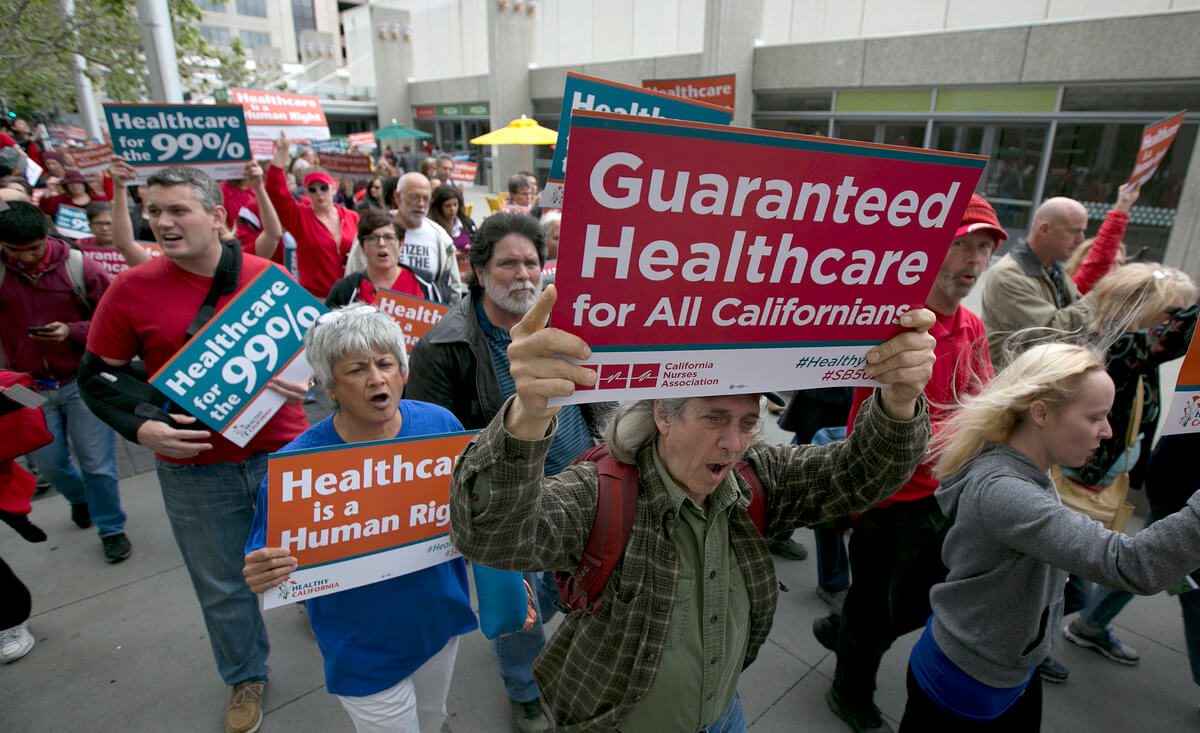Expanding MaineCare to everyone in the state will reduce access to health care and raise taxes – Bangor Daily News

The BDN Opinion section operates independently and does not set newsroom policies or contribute to reporting or editing articles elsewhere in the newspaper or on bangordailynews.com.
Katherine Pelletreau is the executive director of the Maine Association of Health Plans. Jeffrey Austin is vice president of government affairs for the Maine Hospital Association.
Access to affordable health care is an important issue for all Mainers. As baby boomers continue to age and younger generations are increasingly raising families of their own, ensuring family budgets aren’t hurt by increasing health care and insurance costs is a priority for us all.
But a bill introduced in the Maine Legislature, LD 1608, would, we believe, lead us in the wrong direction. The consequences of this legislation could be less access to care and higher taxes for us all. Rather than making improvements to our current health care system, this one-size-fits-all legislation would put more control in the hands of the government.
This bill would create a health care system that is managed not by health care professionals, but by the state government in Augusta. LD 1608 would expand MaineCare, Maine’s Medicaid program for the poor and disabled, to cover all the state’s residents. If you like your coverage now, you likely won’t be allowed to keep it. In the process it could drive doctors out of business due to lower reimbursement rates and lead to decreased access due to fewer providers.
Experiments in other states show what we should expect if this experiment were to move forward in Maine.
Washington is the only state that has created a government-controlled health insurance system thus far, rolling it out in 2021. Lawmakers who backed government-controlled health care in Olympia made the same promises that are now being made in Augusta. Yet Kaiser Health News and NPR reported in February that public option premiums in Washington were 11 percent higher on average than the lowest silver plan premium on the market. It is not a surprise then that only 1 percent of people buying plans on Washington’s marketplace have chosen the government-controlled model.
Other states have taken notice of this failure. In fact, California is the latest addition to a long list of states that have rejected or abandoned proposals for one-size-fits-all health care systems due to high costs, unaffordable tax increases, and lack of public support. Politicians in other states such as Vermont, New Mexico and New York have attempted to push government-controlled health insurance systems only to see efforts stalled due to public opposition to the unaffordable costs and consequences.
MaineCare is a government run, single-payer system for the poor and elderly, and it’s struggling to meet its obligations to our most vulnerable citizens. There are frequent news reports of providers of vital social services reducing their capacity or even closing their doors. Many of these providers rely on Medicaid reimbursement for their survival, and they are closing their doors. Forcing MaineCare to cover everyone else jeopardizes both the primary role of Medicaid to serve the needy and the basic healthcare access for everyone else.
Evidence shows that the creation of a one-size-fits-all system could lead to higher taxes and unaffordable costs for Mainers. Our state cannot afford this experiment. Increased premiums, a destabilized marketplace, and increased taxes on businesses and families, among other potential consequences, would seriously hurt our communities.
This would be especially true in the many rural communities across our state. Maine currently has 16 rural hospitals ( maine.gov). A study by Navigant, funded by the Partnership for America’s Health Care Future, found that a government-controlled health insurance system “could place as many as 55% of rural hospitals … at high risk of closure.” Considering how difficult it already is for citizens in rural parts of our state to receive the medical care they need, losing up to half of our rural hospitals would be devastating.
This issue is simply too important for too many. There is a better way. Through commonsense improvements, we can build upon the strength of our current health care system without upending the quality coverage and care families in Maine rely upon.
All our member companies are committed to developing new coverage plans and partnerships with providers that can help reduce costs and improve accessibility without undermining the entire health care system in Maine.
We urge all lawmakers in Maine to join us in this fight by opposing ideas like government-controlled health care and instead back solutions that build on and improve our current health care system. We can make high quality affordable care accessible to everyone if we all work together.







